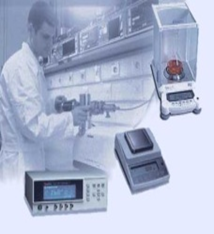5В073200-Standartization, Certification and Metrology
Graduate model
of the educational program of bachelor degree "Standardization and Certification"
 A specialist engineer - performs compulsory normalization control of technical documentation, develops new projects and revises existing standards and other standardization documents, studies the technical level of products, production features and operating results of standardized and unified products and individual elements, participates in the examination of product level projects their standardization and unification. Conducts work to improve the quality and competitiveness of products using standardization methods. A specialist engineer - performs compulsory normalization control of technical documentation, develops new projects and revises existing standards and other standardization documents, studies the technical level of products, production features and operating results of standardized and unified products and individual elements, participates in the examination of product level projects their standardization and unification. Conducts work to improve the quality and competitiveness of products using standardization methods. |
| The purpose of the educational program |
|
Training highly qualified specialists to control the quality of products and processes during the work on the standardization and certification of grain and its products. |
| Degree awarded |
| Bachelor of Engineering and Technology in the educational program 6B07501 "Standardization and Certification" |
| List of specialist positions |
| specialist and engineer at grain processing enterprises, head of metrological services and laboratories, inspector of quality control and certification services, technical expert, expert auditor, college teacher. |
| Objects of professional activity |
|
governing bodies, departments; enterprises, organizations of state and non-state ownership for the production of products (services); testing laboratories (centers); enterprises, organizations of state and non-state property related to the metrological support of production, social and environmental activities; enterprise, organizations that are directly related to the methods and means of measurement. |
| Functions of professional activity |
|
- development of new and revision of existing standards and other regulatory documents on standardization and certification in the grain complex; - the implementation of a systematic verification of the standards applied at the enterprise and other documents on standardization and other documents on standardization and certification in the grain complex; - monitoring the performance of work on standardization by units of enterprises of the grain complex; - study and systematization of advanced domestic and foreign experience in the field of standardization and certification in the grain complex. |
| Personal qualities |
|
1. General civil qualities: patriotism, expressed in love for the Motherland, citizenship, determined by an active lifestyle, civil consciousness, law-abiding, understanding of their civil rights, freedoms and duties. 2. Spiritual and moral qualities: humanity, honesty, conscientiousness, tolerance to other beliefs, world views and customs, decency, mercy. 3. Intellectual qualities: erudition, critical and emotional thinking, fluency in English, information and communication technologies, the ability to learn throughout life. 4. Business qualities: hard work, responsibility, flexibility, adaptability, ability to work in a team, ability to make non-standard decisions in emergency situations. 5. Organizational and volitional qualities: dedication, self-demanding, self-critical, organized, sociable, having a common culture, will, ability to achieve the intended goal. 6. Special qualities: high demands on yourself. |
| The results of training of bachelor-engineering and technology for standardization and certification (Dublin descriptors) |
|
At the end of the educational program, graduates can: 1) demonstrate knowledge and understanding in the field of technical regulation, including elements of the most advanced knowledge in this area; 2) to apply knowledge and understanding in the field of technical regulation at a professional level; formulate arguments and solve problems, problems on issues in the field of technical regulation; 3) to collect and interpret information in the field of environmental protection to form judgments taking into account social, ethical and scientific considerations; 4) communicate information, ideas, problems and solutions in the field of technical regulation, both to specialists and non-specialists; 5) training skills necessary for independent continuation of further education in the field of technical regulation. |

